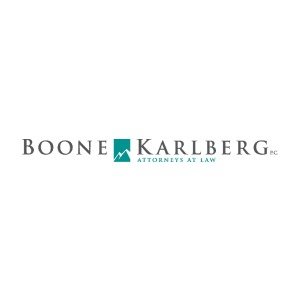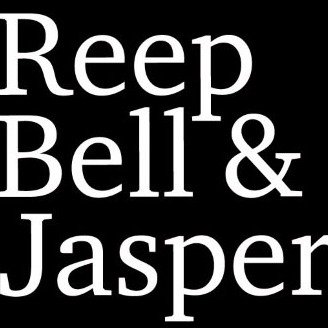Best Landlord & Tenant Lawyers in Montana
Share your needs with us, get contacted by law firms.
Free. Takes 2 min.
Free Guide to Hiring a Real Estate Lawyer
Or refine your search by selecting a city:
List of the best lawyers in Montana, United States
United States Landlord & Tenant Legal Questions answered by Lawyers
Browse our 2 legal questions about Landlord & Tenant in United States and read the lawyer answers, or ask your own questions for free.
- What is owner of condo units obligation as far as damage to the condo below their unit.
- The unit above my condo is managed by a Property Management company, and it was rented. During the time it was rented, there were water leaks that damaged my ceilings, and the Management Company. refuses to fix the ceiling so that it matches the rest of the ceiling. Even though... Read more →
-
Lawyer answer by Horus Legal Sulotion
Thank you for sharing the details of your situation. Based on the circumstances you described, you may have grounds to escalate the matter legally. You can file a case to request the appointment of a government engineer from Dubai Municipality...
Read full answer - How to protect property from squatters law
- Deed in my mom's name. She died 18 years ago. Son is named as administrator but not as owner. We live in USA so let Non relative live there for 45-50 year but had no formal contract. Let him live there free as long as he paid utilities and taxes.... Read more →
-
Lawyer answer by M BILAL ADVOCATES, CORPORATE & TAX CONSULTANTS
After completing probate to establish yourself as the legal heir, you can transfer the property title to your name and then grant them permission to reside there through a formal agreement. It is worthy to note that you can do...
Read full answer
About Landlord & Tenant Law in Montana, United States
Landlord and tenant law in Montana governs the rights and responsibilities of both property owners and renters. These laws cover a wide range of topics, including leases, rent payments, security deposits, repairs, and the process for ending a rental agreement. The main goal of these rules is to ensure fairness and clarity in the relationship between landlords and tenants, promoting safe and habitable housing throughout the state.
Why You May Need a Lawyer
There are several situations when legal advice or representation can be helpful for landlords or tenants in Montana. Some common reasons include:
- Evictions or threats of eviction
- Disputes over return of security deposits
- Allegations of lease violations
- Allegations of discrimination in housing
- Unlawful entry or privacy violations by a landlord
- Finding or understanding lease loopholes or unclear clauses
- Failure to make necessary repairs or address safety issues
- Conflicts over rent increases or late fees
- Dealing with abandonment or damage to property
- Concerns about retaliation for reporting a problem or exercising tenant rights
A qualified attorney can explain your rights, help you navigate local laws, negotiate a resolution, or represent you in court if needed.
Local Laws Overview
Montana's rental laws are mainly found in the Montana Residential Landlord and Tenant Act. Some key aspects include:
- Written and Oral Leases: Rental agreements can be either written or oral, but written agreements offer greater protection for both parties.
- Security Deposits: Landlords may collect security deposits but must return them within ten days of the tenant moving out unless there are damages or unpaid rent, in which case they have 30 days.
- Rent Payment: There are no statewide limits for rent amounts. Late fees are allowed if specified in the rental agreement.
- Repairs and Maintenance: Landlords are required to keep the property in a habitable condition, including providing heat, water, and necessary repairs.
- Evictions: Landlords can only evict tenants for lawful reasons, such as nonpayment of rent or lease violations. Specific notice periods and procedures must be followed.
- Tenant Privacy: Landlords must give at least 24 hours’ notice before entering a tenant's unit, except in emergencies.
- Discrimination: State and federal laws prohibit housing discrimination based on race, color, religion, national origin, sex, disability, or familial status.
Frequently Asked Questions
What can a landlord require for a security deposit?
Montana law does not set a maximum amount for security deposits, but it must be reasonable and stated in the rental agreement.
How soon does a landlord have to return a security deposit?
The landlord must return the security deposit within ten days after the tenant moves out if there are no deductions. If there are deductions for damages or unpaid rent, the landlord has 30 days and must provide an itemized list.
Can a landlord increase the rent during a lease?
During a fixed-term lease, rent cannot be increased unless the lease allows it. For month-to-month rentals, landlords must give at least 30 days’ written notice before increasing rent.
What notice is required to end a month-to-month tenancy?
Either the landlord or tenant can end a month-to-month tenancy by providing a written 30-day notice.
What are a landlord's repair obligations?
Landlords must keep rental properties in safe and habitable condition, making repairs as necessary to comply with health and safety standards.
How much notice must a landlord give before entering an occupied rental?
A landlord is required to provide at least 24 hours’ notice before entering a rental unit, except in the case of an emergency.
What reasons can a landlord evict a tenant for?
Common legal reasons for eviction include nonpayment of rent, lease violations, or the end of a lease term. The landlord must follow proper procedures and provide legal notice before evicting.
Can tenants withhold rent for repairs?
In some cases, tenants can withhold rent or arrange for repairs and deduct the cost if the landlord does not address critical repair needs. Tenants should follow strict legal steps before doing so.
What should a tenant do if facing discrimination?
Tenants should document the behavior, contact the Montana Human Rights Bureau or the U.S. Department of Housing and Urban Development, and may want to consult a lawyer with experience in housing discrimination cases.
What can I do if my landlord retaliates against me?
Retaliation against tenants for exercising their legal rights is prohibited. Tenants can file a complaint or pursue damages in court if retaliation occurs.
Additional Resources
- Montana Department of Justice - Consumer Protection Office: Assists with landlord-tenant complaints and general consumer issues.
- Montana Legal Services Association: Provides free or low-cost legal assistance to eligible individuals on housing matters.
- Montana Human Rights Bureau: Investigates claims of housing discrimination and helps enforce fair housing laws.
- Local courts and mediators: Often provide resources and advice for resolving landlord-tenant disputes.
- U.S. Department of Housing and Urban Development (HUD): Offers housing guidance and national legal protections.
Next Steps
If you need legal help regarding a landlord and tenant issue in Montana, consider the following steps:
- Gather and organize all relevant documents, such as leases, correspondence, and records of payments or repairs.
- Contact a local attorney who specializes in landlord and tenant law for advice on your specific situation.
- Reach out to Montana Legal Services Association if you need assistance and cannot afford private legal representation.
- If possible, try to resolve issues with the other party through direct conversation or mediation before pursuing legal action.
- If your rights are being violated, consult the Department of Justice or Human Rights Bureau for further guidance and help with filing formal complaints.
Remember, quick action can protect your rights and prevent issues from getting worse. Always make sure to understand your obligations and rights as outlined in Montana law and your rental agreement.
Lawzana helps you find the best lawyers and law firms in Montana through a curated and pre-screened list of qualified legal professionals. Our platform offers rankings and detailed profiles of attorneys and law firms, allowing you to compare based on practice areas, including Landlord & Tenant, experience, and client feedback.
Each profile includes a description of the firm's areas of practice, client reviews, team members and partners, year of establishment, spoken languages, office locations, contact information, social media presence, and any published articles or resources. Most firms on our platform speak English and are experienced in both local and international legal matters.
Get a quote from top-rated law firms in Montana, United States — quickly, securely, and without unnecessary hassle.
Disclaimer:
The information provided on this page is for general informational purposes only and does not constitute legal advice. While we strive to ensure the accuracy and relevance of the content, legal information may change over time, and interpretations of the law can vary. You should always consult with a qualified legal professional for advice specific to your situation.
We disclaim all liability for actions taken or not taken based on the content of this page. If you believe any information is incorrect or outdated, please contact us, and we will review and update it where appropriate.
Browse landlord & tenant law firms by city in Montana
Refine your search by selecting a city.














